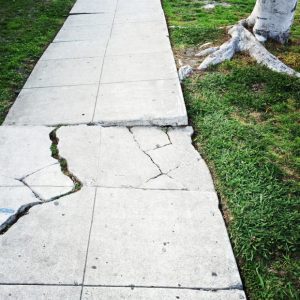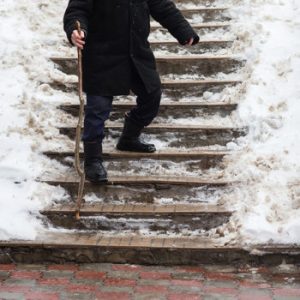
The tragedy that occurred earlier this month at an outdoor music event in Houston, leaving at least eight attendees dead and hundreds more injured, has subsequently spawned more than two dozen liability lawsuits naming everyone from the performer to the promoter, and even the venue.
Liability law is somewhat complicated, but if you were injured because of a slip, trip, fall, or other hazards on the premises you were on, you may be entitled to bring suit against the possessor of the property for your injuries.
Slip and fall cases are based on tort law, which means the burden of proof is on you (the victim). to prove the general elements of a negligence claim. Proving liability or negligence can become complex fairly quickly, which is why it’s important to consult with a personal injury attorney as soon after your accident as possible.
Elements for Establishing Negligence in a Premises Liability Claim
There are four basic elements that you (the plaintiff) must prove in establishing a premises liability claim (e.g. the defendant):
- The defendant owed you a legal duty;
- The defendant breached that duty;
- The defendant’s breach of their legal duty was a proximate cause of your injuries, and;
- The plaintiff suffered damages as a result of the defendant’s breach of a legal duty to keep you safe.
 The Caveat: Open and Obvious
The Caveat: Open and Obvious
Whether or not a hazardous condition is considered “open and obvious” also plays a major role in any premises liability claim. If a hazard is so blatant, referred to in court as “open and obvious,” that a reasonable person would take care to avoid it, the plaintiff may be barred from making his or her claim. Because most defendants will use this issue as a defense in a premises liability claim, “open and obvious” has become the fifth hurdle a plaintiff must establish did not exist.
“Possession and Control” of a Property Establishes Legal Duty
The first step in a premises liability case is to establish that a defendant owed you a legal duty, and the extent of the duty owed. Generally, a defendant’s legal duty arises out of their possession and control over the property.
It’s important to understand that possession and control is not the same as “ownership” of a property. In fact, the Michigan Supreme Court has found that while the same individual or entity may hold both “ownership,” in addition to “possession and control,” they are distinctly different concepts.
 For example, the owner of a shopping complex may rent individual retail spaces to small businesses, but still maintain the safety and upkeep of the parking lot and sidewalk. In such a scenario, the mall owner would likely be responsible for the injuries of a patron injured by a slip and fall in the parking lot, but would not be responsible if that same individual fell inside a store; although the owner holds title to the store space, they are not in possession or control of that rented space at the time the injury occurred.
For example, the owner of a shopping complex may rent individual retail spaces to small businesses, but still maintain the safety and upkeep of the parking lot and sidewalk. In such a scenario, the mall owner would likely be responsible for the injuries of a patron injured by a slip and fall in the parking lot, but would not be responsible if that same individual fell inside a store; although the owner holds title to the store space, they are not in possession or control of that rented space at the time the injury occurred.
In Michigan, the extent of the duty owed by the possessor of land is dependent upon the purpose for which a plaintiff was on the land at the time they sustained an injury.
